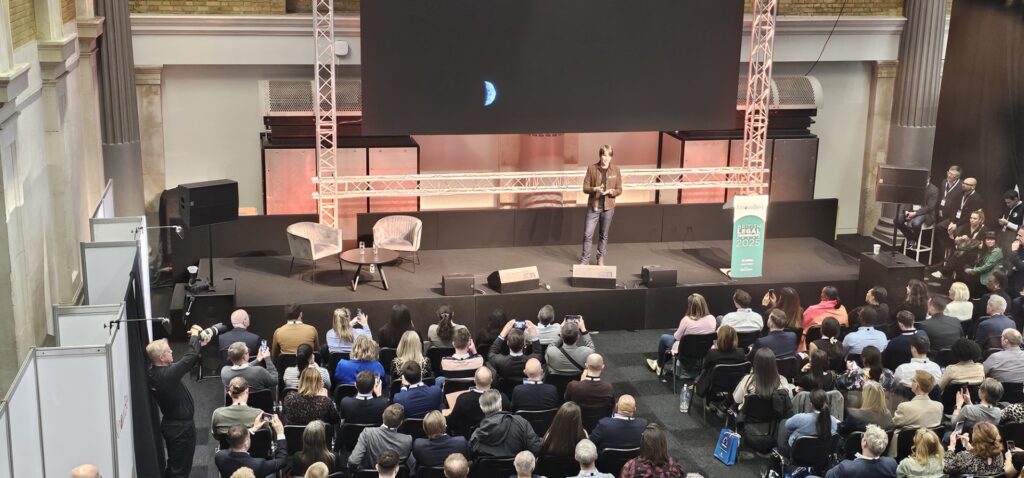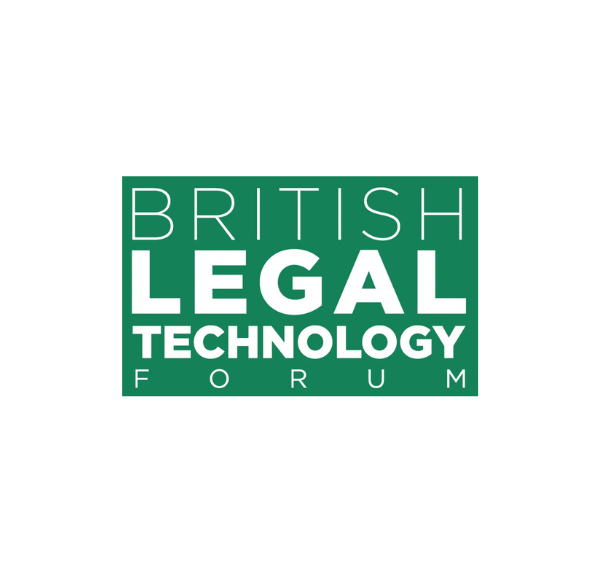
Last week, our UK VP, Joe DiCarlo, attended the British Legal Technology Forum (BLTF) 2025 in London. The event was packed with insightful discussions on change and innovation in the UK legal sector. With over 1,400 senior executives present, it marked the 10th consecutive year of this major legal tech gathering.
Joe engaged with legal professionals, listened to thought-provoking speakers, and saw some of our partners lead impactful sessions. The event highlighted the industry’s growing appetite for innovation. It became clear that legal technology is creating waves like never before.
A Key Reflection: Innovation is Thriving, Especially Among Midsize Firms
One of Joe’s primary takeaways from the event was the leading role that midsize law firms are playing in driving technological change. In recent years, these firms have taken bold steps in modernising their workflows and adopting new technologies. The community is embracing innovation not just to stay competitive, but to redefine how they approach legal practice in a rapidly evolving landscape. This trend was reinforced during our partner Actionstep’s Future of Mid-Market Law event, which shone a spotlight on the strides midsize law firms are making.
Midsize firms are proving to be agile and adaptable. They are blending traditional practices with innovative solutions to boost efficiency and client service. Their forward-thinking approach was clear throughout BLTF 2025. This trend will likely shape the future of the UK legal sector.
Dictation Workflows: A Traditional Method with Staying Power
As we continue to embrace new legal technologies, one thing remains certain—dictation workflows are here to stay. Despite the rise of automation and AI tools, dictation continues to be a preferred method for many legal professionals. It offers a seamless, efficient, and personalised way to manage casework and documentation. Joe’s conversations about cloud digital dictation at the event highlighted that dictation isn’t fading away; instead, it’s evolving and integrating with useful technologies to create smoother workflows.
AI for Legal Firms: The Buzz and the Reality
Artificial Intelligence was, unsurprisingly, a hot topic at BLTF 2025. From AI-driven document review to agentic AI, the discussions were rich with ideas on how AI could be further integrated into legal workflows. A standout session featured Catherine Bamford and Jill Schornack discussing agentic AI—an advanced form of AI that can act autonomously in decision-making processes. The session underscored the importance of setting clear guardrails for this technology to ensure accountability, transparency, and ethical use.
Shilpa Bhandarkar’s talk on cutting through the AI haze was another highlight. She brought much-needed clarity to the ongoing AI adoption debates, emphasising that onboarding a tool and effectively adopting it are two very different things. Her insights into the nuances of AI implementation, including biases and process mapping, sparked many interesting conversations among attendees.
Interoperability: Bridging Systems for Seamless Legal Operations
Another key theme at BLTF 2025 was the need for interoperability between legal systems. As law firms adopt a variety of tech solutions, integrating these systems is critical to ensuring smooth workflows. Joe noted that many legal professionals are looking for tools that can “talk” to each other, creating unified and efficient operational ecosystems. This seamless interaction between systems is becoming a top priority for firms looking to streamline their processes and deliver better outcomes for clients.
ALSPs: No Longer ‘Alternative,’ Now Core to Legal Ecosystems
A particularly engaging panel discussion at BLTF 2025 revolved around Alternative Legal Service Providers (ALSPs). As Chris Fowler, COO of Rio Tinto, and Lyn Harris from Herbert Smith Freehills discussed, ALSPs are no longer viewed as just an “alternative.” They’ve become integral to the legal ecosystem, with 57% of corporate law departments now relying on them for services ranging from flexible resourcing to eDiscovery.
ALSPs give firms access to specialised expertise, flexible resources, and tech-driven solutions. This shifts the focus from cost-cutting to delivering real value. As legal operations grow more complex, ALSPs are becoming key partners for law firms looking to optimise their workflows.
Professor Brian Cox: A Sci-Fi Future Closer Than We Think
To close out the day, Professor Brian Cox delivered an inspiring keynote that took attendees on a journey beyond legal tech. His address was a reminder that what once seemed like science fiction is now closer to reality than ever before. The legal industry, much like other sectors, is transforming rapidly, and Cox’s message encouraged the audience to keep an open mind as we move toward a future where integrated, seamless legal ecosystems could become the norm.
In the end, BLTF 2025 showcased the cutting edge of legal technology and offered a glimpse into the exciting possibilities that lie ahead. It was a fantastic opportunity to connect with leaders, share ideas, and explore how technology can revolutionise the legal world.
As we look forward to next year’s event, scheduled for March 10th, 2026, Diktamen remains committed to being a supporter of this transformation—ensuring that the legal sector continues to innovate, adapt, and thrive.

Want to Enhance Your Workflow with Cloud Digital Dictation?
To learn more about how our cost-affective cloud dictation solution can benefit your firm, contact Joe DiCarlo for a personalised demo. He’ll walk you through the features and answer any questions you have!

